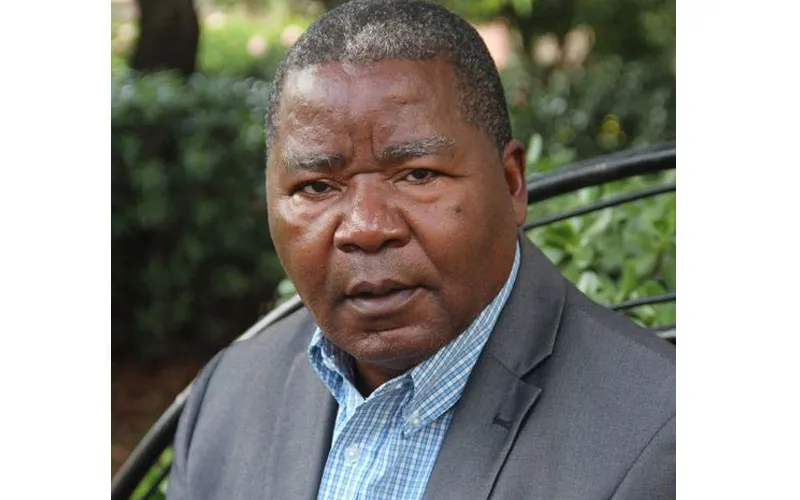The late Theology professor has been likened to “a fallen tree” in the Nairobi-based Jesuit’s glowing tribute.
“In some African cultures, towering personalities in fields of human endeavor are likened to a giant tree in the forest. Their demise is aptly expressed with the metaphor of a fallen tree,” Fr. Orobator says about the late African Theologian.
He adds, “Magesa’s pilgrimage from his humble origins in his birthplace, Musoma in northern Tanzania, to the towering heights of his renown on the global stage of theological erudition tells the story of a faithful pastor, humble scholar, beloved teacher and exemplary Christian.”
In his tribute shared with ACI Africa, Fr. Orobator recalls having first met Fr. Magesa in Musoma in 2004, where he was doing pastoral ministry in a rural Parish.
This was a time when the professor’s book, “Anatomy of Inculturation: Transforming the Church in Africa (Orbis, 2004)” was under preparation for publication.
(Story continues below)
The Jesuit Priest says in reference to the late Priest and his book, “He gave me a galley proof to read. The significance of that book was instantaneous and unmistakable: Magesa had written the magna carta of African theology of inculturation. The combination of his penetrating insight, engaging originality and evidence-based analysis redefined the meaning, significance and practice of inculturation.”
In the book, “What Is Not Sacred? African Spirituality”, Fr. Magesa is said to have “brilliantly explored the beauty of the spirituality of African Religion and its enduring gift to Christianity as a light, not a shadow.”
The book, Fr. Orobator says, “tended to be portrayed by those who were either ignorant of or biased against its true nature.”
Fr. Magesa’s final contribution to the publishing sector was in March 2022 to an edited volume on Synodality, “A Pocket Companion to Synodality: Voices from Africa (African Synodality Initiative, 2022).”
Titled, “Journeying Together in Service and Harmony: The African Jamaa as a Model for a Synodal Church,” Fr. Magesa is said to have explored the meaning and practice of Synodality from the cultural perspectives of Africa.
The late widely published scholar is said to have pointed out that “what is intended by the synod as a whole is unity in thought, word, and deed of all the faithful who as a body and beyond the purpose of jamaa, which is primarily social self-preservation, are on the road toward the objective of their salvation and the redemption of humankind.”
In his tribute, the President of JCAM says that Fr. Magesa’s scholarship, research, writing and publication gave “a distinctively African face to Inculturation Theologies, Liberation Theologies, and Catholic Theological Ethics, three areas where he was the undisputed leader.”
He adds, in reference to the late Priest, “Strikingly, he put his theological convictions, ideas and principles into action in his everyday living. During his teaching spell at Hekima University College, he created and led inculturated Eucharistic liturgies that drew on the best traditions and values of African cultures and religion in dialogue with the Gospel.”
In his tribute, Fr. Orobator says that the late Tanzanian Priest and scholar has earned himself a place in the ranks of ancestors of the Church in Africa.
“The belief is strong in many parts of Africa that the status of an ancestor is reserved for people who have made a transformative and enduring contribution of service to their community,” he says in his tribute to Fr. Magesa.
Fr. Orobator adds, “By his life of service as a pastor, the depth of his scholarship and the example of his life as a Christian, Magesa now qualifies to join the ranks of ancestors of the Church in Africa and the World Church.”
Tributes of Fr. Magesa have continued to fill the internet, with many social media users describing the late scholar as “an icon and a theological trailblazer” and “a theologian of all times”.
A Facebook user identified as Itumeleng Mothoagae has posted, “Prof Rev Fr Laurenti Magesa is an icon and a theological trailblazer. His theology has challenged us on how Africans have to take our contexts seriously. He has now bowed out of the theological stage. May your soul rest in eternal peace.”
Another Facebook user, Stan Chu Ilo, has described Fr. Magesa as his hero, mentor, and intellectual father.
“Today one of the greatest African theologians of all times, Fr. Professor Laurenti Magesa joined our ancestors. An iroko (African ancestral tree) has fallen and we all are in shock and in pain,” Stan Chu Ilo says in his Facebook post.
The Facebook user continues, “But Baba Magesa lives on in his numerous books and hundreds of articles all of which helped to define theology and Christian scholarship on the continent of Africa.”
“Baba Mwalimu Magesa, You are my hero, my mentor, my friend, my intellectual father, and my cheerleader,” Stan Chu Ilo says in his August 11 Facebook post.
Agnes Aineah is a Kenyan journalist with a background in digital and newspaper reporting. She holds a Master of Arts in Digital Journalism from the Aga Khan University, Graduate School of Media and Communications and a Bachelor's Degree in Linguistics, Media and Communications from Kenya's Moi University. Agnes currently serves as a journalist for ACI Africa.








